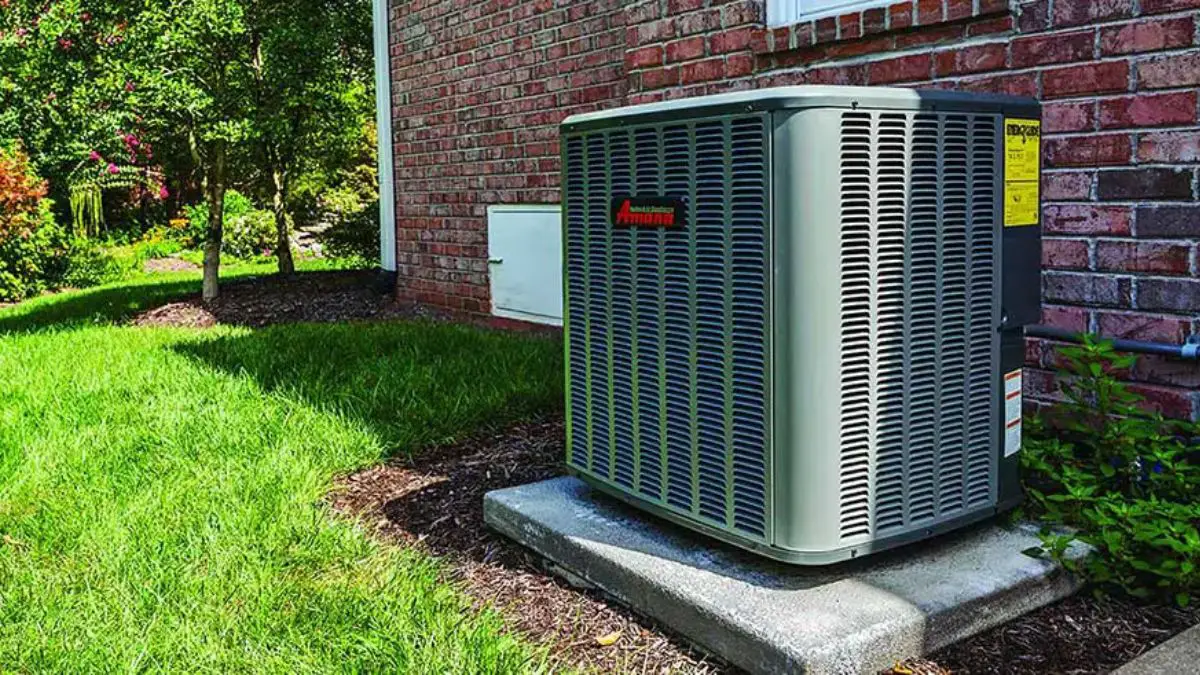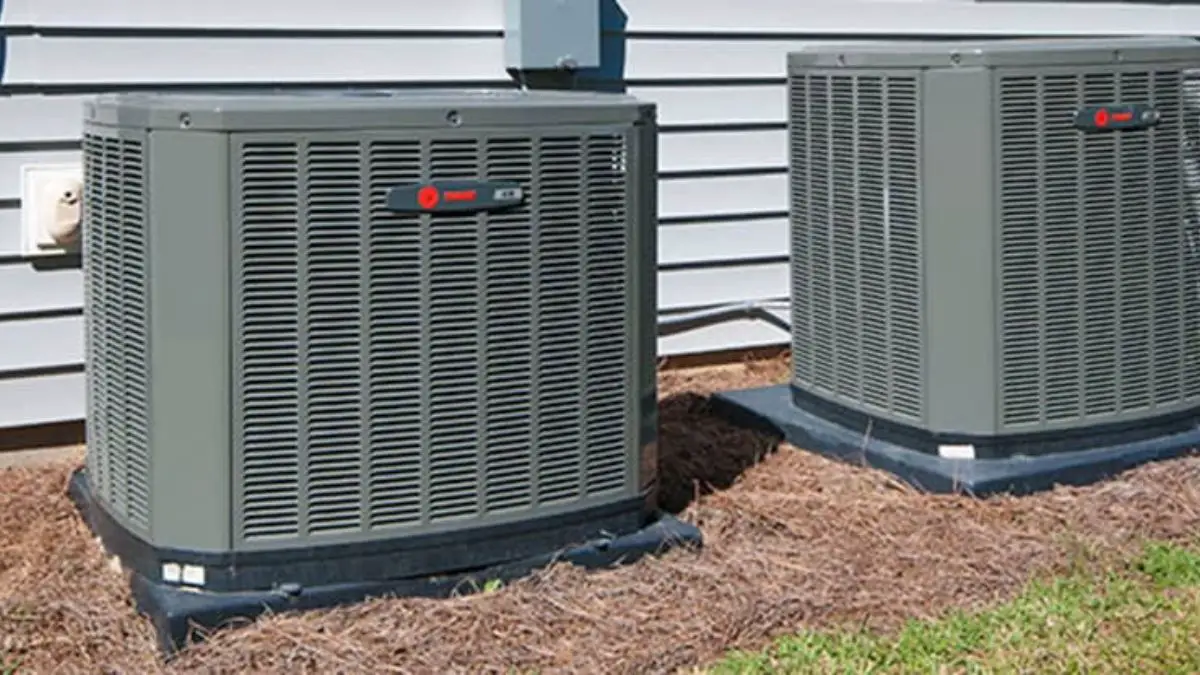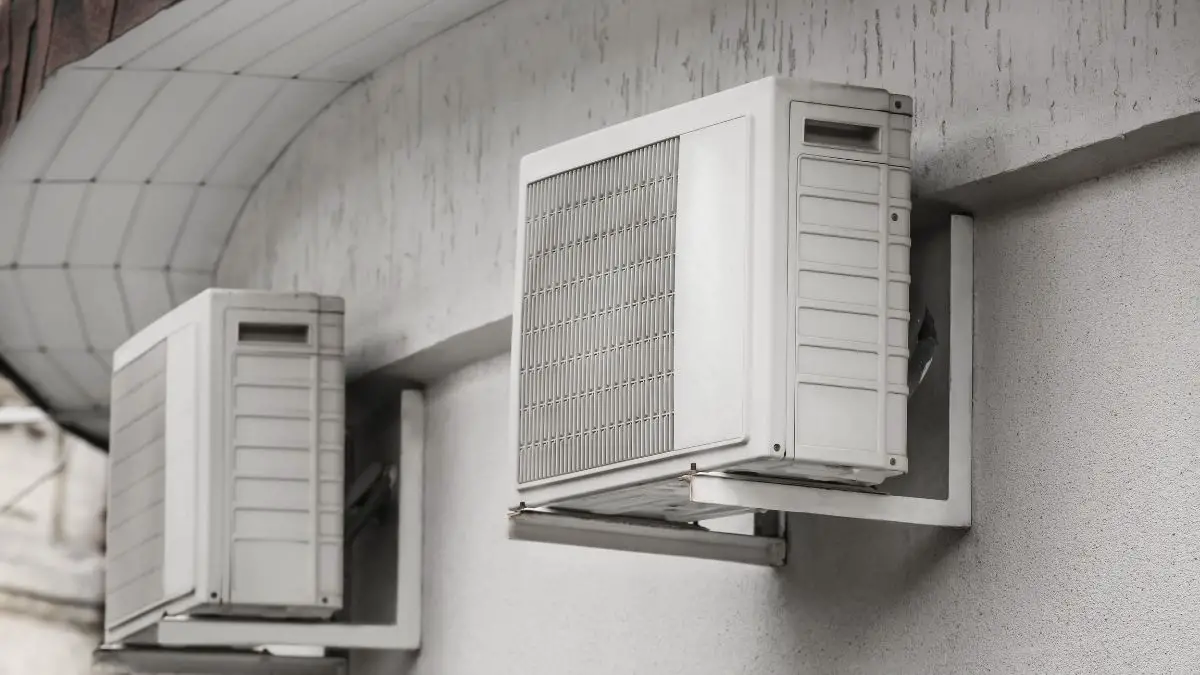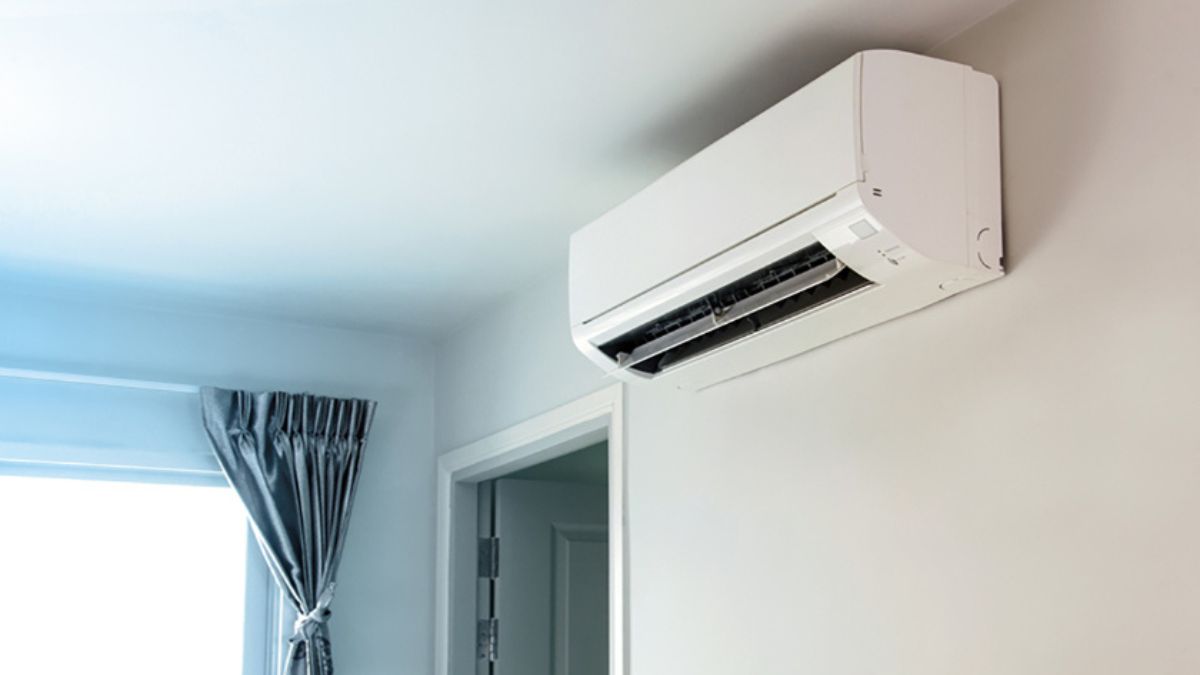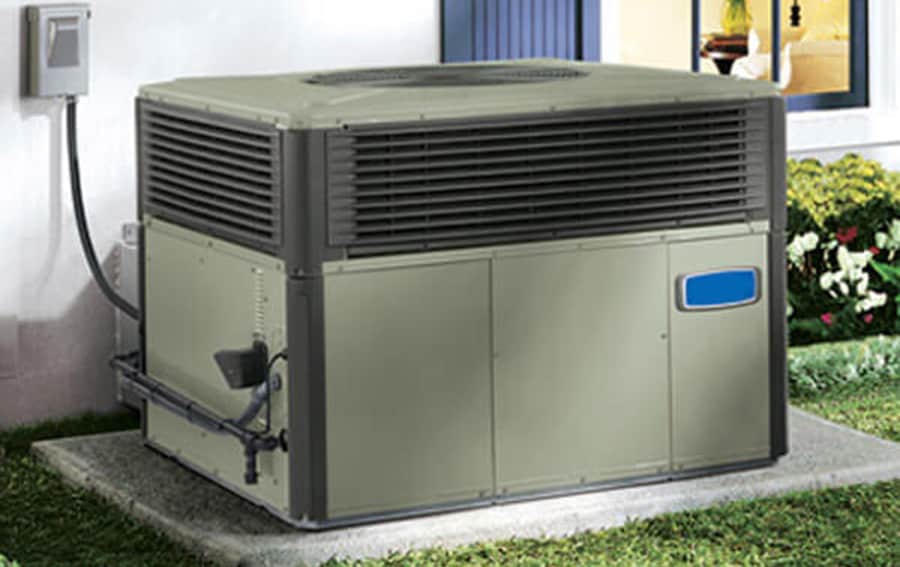
Dual fuel heat pumps are incredibly energy efficient compared to most other heating systems. They provide the combination of an electric heat pump and a gas furnace. If you’re on the fence and you’re trying to find out if it’s time to upgrade, you’re in luck.
So, are dual fuel heat pumps worth it? Yes, dual fuel heat pumps are worth the investment. They provide the energy-efficient benefits of an electric heat pump with the reliable heat of a gas furnace. Dual fuel heat pumps alternate between electric and gas based on the outside temperature for maximum efficiency. The electric heat pump is utilized when it’s warmer – such as in the spring, summer, and fall; but during the freezing temperatures in the winter, the gas furnace kicks on to warm up the home for maximum efficiency. Dual fuel heat pumps are an excellent choice in areas that experience a wide variance of temperatures in all seasons.
Throughout this article, you’ll also learn about the following information:
- Details about dual fuel heat pumps
- Whether or not you should get one
- The price differences between single and dual fuel heat pumps
- How long they last
- How you can maintain your heat pump
- Dual fuel vs. gas furnaces
Should You Get a Dual Fuel Heat Pump?
Will a Heat Pump Work in Subzero Temperatures? Dual fuel heat pumps use electricity or gas to warm up a home. The source that it uses depends on the temperature of the environment. When it’s freezing temperatures occur, gas is used to raise it to manageable temperatures.
During the spring, summer, and fall, your dual fuel heat pump will most likely use electricity. We all know that more electricity and gas equates to a bigger utility bill. Are they worth buying, or are you wasting your money just to spend even more?
In theory, dual fuel heat pumps are always a better choice. Energy efficiency in a dual fuel heat pump is as good as it gets. That being said, it’s a good idea to examine the advantages and disadvantages before you buy one.
Here are the pros and cons of dual-fuel heat pumps in comparison to traditional heat pumps that only use electricity:
Pros of Dual Fuel Heat Pumps
- Energy efficiency is a word that you’ll read a lot throughout this article. Not only is it better for the environment, but it also saves you money in the process. Being able to relax while knowing your heating system is doing the best it can to keep cash in your wallet is a huge benefit.
- The gas portion of a dual fuel heat pump only runs when it needs to, which means you don’t have to worry about forking out huge gas bills at all times of the year. They usually use a low amount of electricity for the most part. The gas furnace is more efficient than the emergency heat strips used in traditional heat pumps.
- You can use a dual duel heat pump to cool down a house just as quickly as a regular air conditioner unit. It reverses the heat over a series of coils and combines with refrigerant to reduce the interior temperature of your home.
Cons of Dual Fuel Heat Pumps
- Unless you have a manual menu, most fuel pumps run on whichever fuel source needed based on how the system is programmed. These settings can end up costing you more money by burning through gas when it’s extra cold inside or when it’s warmer and not needed.
- Getting a dual fuel pump can be a bit costly. They’re relatively new compared to other heating systems, and some companies still don’t deal with them. If you’re in a big city, you probably won’t have any issues finding one, though.
Pros of Electric Heat Pumps
- Electric heat pumps are great because they’re reliable and you don’t have to worry about adding gas ever. They’re also found in many homes throughout cold regions, which means almost all companies can work on them. You won’t be limited to one or two businesses when repairs are in order.
- Owning an electric heat pump means that you never have to worry about dangerous gas leaks. If you own a dual fuel heat pump, there’s a small chance that gas can leak many years down the road. The repairs are easy, but it’s peace of mind that counts.
- There are far fewer parts in an electric heat pump than a dual fuel heat pump. Since they only use one system to increase or decrease the temperature of your home, you’ll notice that they have almost half of the number of components.
Cons of Electric Heat Pumps
- Electric heat pumps are much less efficient than their dual fuel counterparts. They use electricity at all times, which means their coils can freeze. If you have a gas furnace as part of your heating system, it can defrost the coils and get them back to working shape. Unfortunately, electric heat pumps don’t have this benefit.
- Despite the fact that they’re not as good when it comes to savings, electric heat pumps don’t cost more less or last longer than dual fuel heat pumps. You’d think that the lack of efficiency would cut back on the money that you spend upfront, but you’d be surprised that the price difference isn’t that big. For more information about price comparisons, proceed to the next section.
Price Differences Between Single and Dual Fuel Heat Pumps
Now that you’ve seen all of the pros and cons of each type of heating system, it’s time to examine the price difference. It should be noted that dual fuel heat pumps can save you hundreds of dollars per year, but you still might not want to fork out the money that it costs to have one installed.
According to Improve Net, the average cost of a dual fuel heat pump is about $3,200 to $3,800. In comparison, an electric heat pump costs between $1,800 to $3,200. The price overlap is what drives most people to consider dual fuel options over electric, but there’s more to it than meets the eye.
If you want a high-quality dual fuel heat pump, then the top range of $3,800 would be the best estimate. These units are an absolute must if you live in freezing temperatures, such as those found in the Midwest during winter.
On the other hand, if you live in a semi-cold area that doesn’t get too freezing during the winter, you could spend as little as $1,800 on an electric heat pump. These models would be ideal near beach towns and lakeside villages that don’t dip down to freezing temperatures too often.
As you can see, dual fuel heat pumps are better, but they’re not always the best choice if you don’t live in a super cold environment. If you have the money and you want to save more over the course of time, then there’s no denying the benefits of them, though.
The final component of the two price differences includes installation costs. The same study by Improve Net points out that installing an electric heat pump costs about the same as the installation price of a dual fuel heat pump.
These numbers range drastically between $1,000 to $6,000. The reasoning behind the massive estimate is that you might need new pipes and other components to get the heat pump working.
How Long Do Dual Fuel Heat Pumps Last?
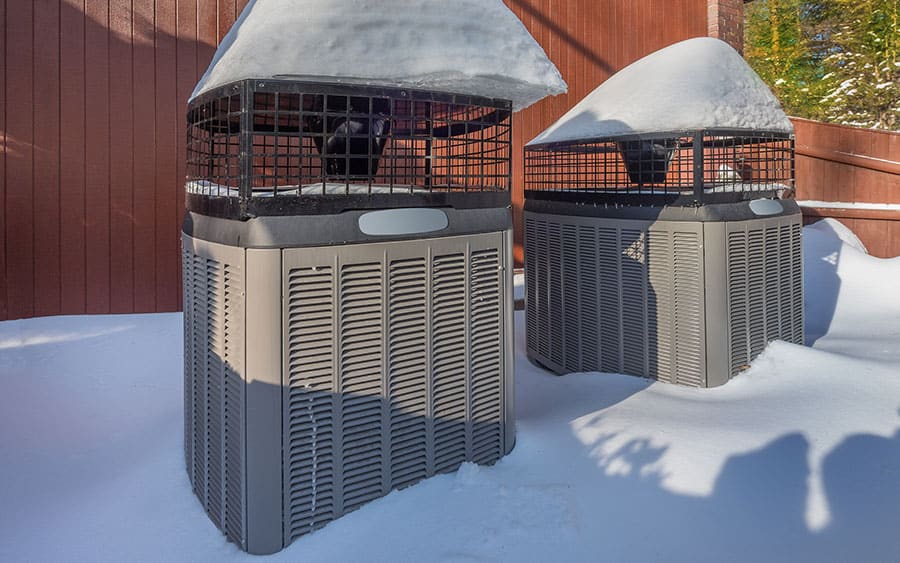
Tri-County Cooling & Heating states that most heat pumps last between 14 to 16 years, putting the average at 15. By following the maintenance suggestions in the next section, you can greatly increase the lifespan, but let’s focus on the factors that determine how long yours will last.
Here are the five things that impact the longevity of your dual fuel heat pump:
- How often you use it and the air temperature directly impacts your pump’s lifetime. If it’s always freezing outside and your pump is running 24/7, then you shouldn’t expect more than 8 to 12 years. However, if it’s only used in the winter, then it’ll exceed 15 years in most cases.
- The make and model of the unit are also important. We all know that some companies are better than others. This concept stretches from cars to computers, and refrigerators to heat pumps. Always do heavy research on a brand to make sure that you’re getting the right one.
- How well you maintain it also matters. You’ll find numerous helpful tips for routine repairs and maintenance in the next section, but just know that these suggestions should be looked at as requirements if you want your dual fuel heat pump to last a long time.
- Who installed the pump? Another key importance is to research the HVAC company that’s installing your equipment. Never let some random jack of all trades examine and replace your heat pump. You’ll void the warranty and likely run into a wide variety of mechanical problems down the road.
- Is your thermostat working correctly? When the thermostat suddenly has a mind of its own, it’ll change the way your heat pump works. For the most part, you’ll notice that it doesn’t kick on. That being said, you might have an issue if it starts to heat your house in the middle of summer. Excess usage cuts off longevity, even when it’s malfunctioning.
How to Maintain a Dual Fuel Heat Pump
Maintenance is the most important part of making your heat pump last longer. Dual fuel heat pumps thrive on efficiency, but they become much less effective when they’re not taken care of. Fortunately, you don’t have to do too much to make it stay afloat.
Following these suggestions to maintain your dual fuel heat pump throughout the year:
- Clean and replace the air filter as needed. The Heat Pump People states that you should clean or replace your filter every 4 to 12 weeks, depending on how much it’s used. You can get an odor-eliminating filter to cut down on the smells coming in from outside. Try out the NaturalAire Filters by Flanders (make sure you choose the right size!).
- Try to leave the thermostat at the same temperature throughout the winter. If you’re always adjusting it, the heat pump has to change its settings and switch between gas and electricity far too often for it to save you energy and money.
- Remove dust, dirt, and other debris (including frost and snow) from the vents and filters as it builds up. Otherwise, you could risk overheating the unit and causing it to short circuit. Oddly enough, a heat pump needs to remain relatively cold to work properly.
- Drain the condensation pan regularly if your unit has one. Since condensation is formed when there’s a warm temperature on the inside of a surface contrasted by a cold temperature on the outside, heat pumps are the perfect environment to create moisture. You shouldn’t let it build up too often or the water could damage your pump.
- Hire an inspector to look at your dual fuel heat pump once a year. This process should be done to check for seal issues, frozen coils, leaks, oiling, and more. They’ll also do everything for you, so you won’t have to worry about maintenance issues.
What to Know Before Buying One
If you’re committed to buying a dual fuel heat pump for efficiency purposes, then it’s important that you know what to look for. Settling for the first one that’s available or buying a cheap one can both cost you more in the long run.
Let’s check out the numerous considerations for you to think about to ensure that you get the best dual fuel heat pump available.
The Brand Matters
Most manufacturers have dual fuel heat pumps. However, not all manufacturers are created equal. There are various dual fuel heat pumps at several price points. As you’ve probably read above, the brand definitely matters. Most dual fuel heat pumps have a typical lifespan of 20-25 years; however, this will vary based on location and maintenance. Brands such as Trane, Lennox, Rheem, and Carrier are among some of the most reputable brands lasting for 20-25 years before you have to replace them.
What Size Do You Need?
Bigger heat pumps push out more hot air. However, they undoubtedly cost more. If you get a 5-ton dual fuel heat pump, you’ll spend thousands of dollars more than if you settled for a 1.5-ton model. Make sure you find out what size you need before you jump the gun and get something that’s too big or too small.
A licensed HVAC contractor can provide heat gain calculations based on the square footage of your home, your homes configuration, and your homes insulation level to determine the size best suited for your needs.
Do You Have a Budget?
If you have a budget, then your options are obviously limited. However, keep in mind that the price of a dual fuel heat pumps costs more money now but it saves you even more down the road. If you’re able to fork out just a few hundred dollars more, you’ll be very happy that you did when you see your winter gas and electric bill.
How Efficient is the Heat Pump?
Efficiency is quite likely the main reason that people choose to buy a dual fuel heat pump. Being able to relax while the system does all of the work for you is excellent. However, not all of them are created equal. Before you buy a heat pump, check the efficiency rating and projected energy savings.
Common Problems
Much like other household mechanical systems, dual fuel heat pumps are eventually going to develop problems. They’re not invincible, though long-term maintenance can make them seem like they are.
By catching problems in their tracks, you’ll be able to cut down on the major issues that occur over time. For example, if you don’t clean a filter, the result will be much less cold or hot air flowing through.
Here’s a list of additional common problems that people experience when dealing with dual fuel heat pumps:
- The air is coming out too cold or not warm enough. If this issue is happening, there are several causes. One of them is that the coils are frozen and therefore they’re not operating as they should. Perhaps the most common of all is that you don’t have enough gas in the furnace.
- It’s making a louder sound than it usually does. This common concern comes from those who are used to a quiet heat pump. While most dual fuel heat pumps remain at a low noise level, there’s a chance that a clog could be the culprit. Also, keep in mind that expanding metal from cold and warm temperatures could cause sudden popping sounds.
- It’s shorted and won’t turn back on. Unfortunately, this major issue could’ve been caused by something as simple as excess moisture. The maintenance suggestions in the previous section points to the dangers of water and electronics combining. Condensation, snow, or even a leaky gutter can short your dual fuel heat pump.
Conclusion
It’s safe to say that dual fuel heat pumps are much more effective and efficient than traditional electric heat pumps. If you’re living in a home for plenty of years to come, you should always buy one of them to save money.
The low price of a regular heat pump might be tempting, but you’ll have the same high electricity bill as you’ve always had. If you really want to save money, then dual fuel is the way to go.
Remember that you still have to maintain the pump system by cleaning the filter, removing debris from the vents, and calling an inspector to come out once a year. These small maintenance tips can be the difference between a heat pump that lasts 10 years and one that lasts 20!


